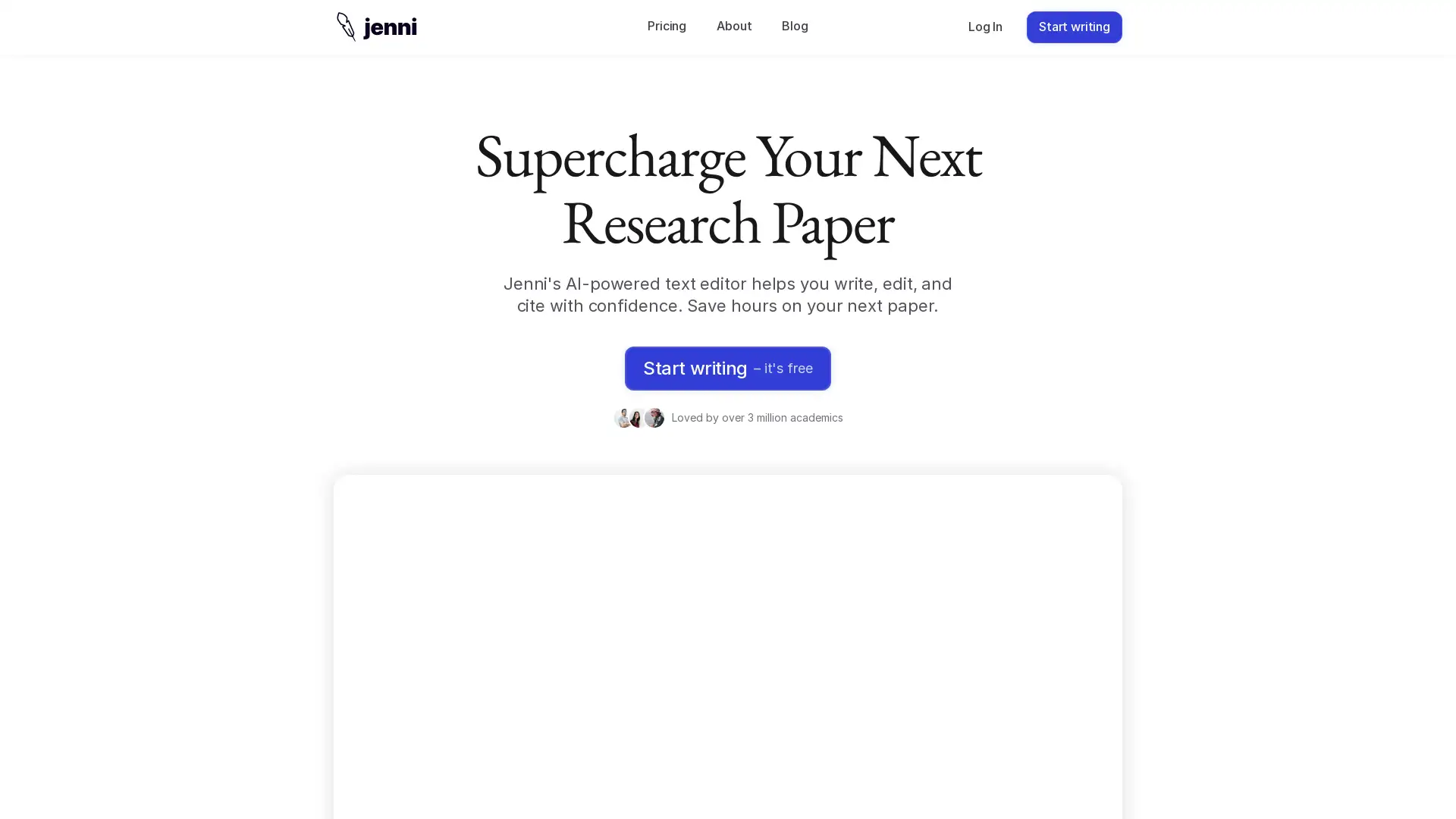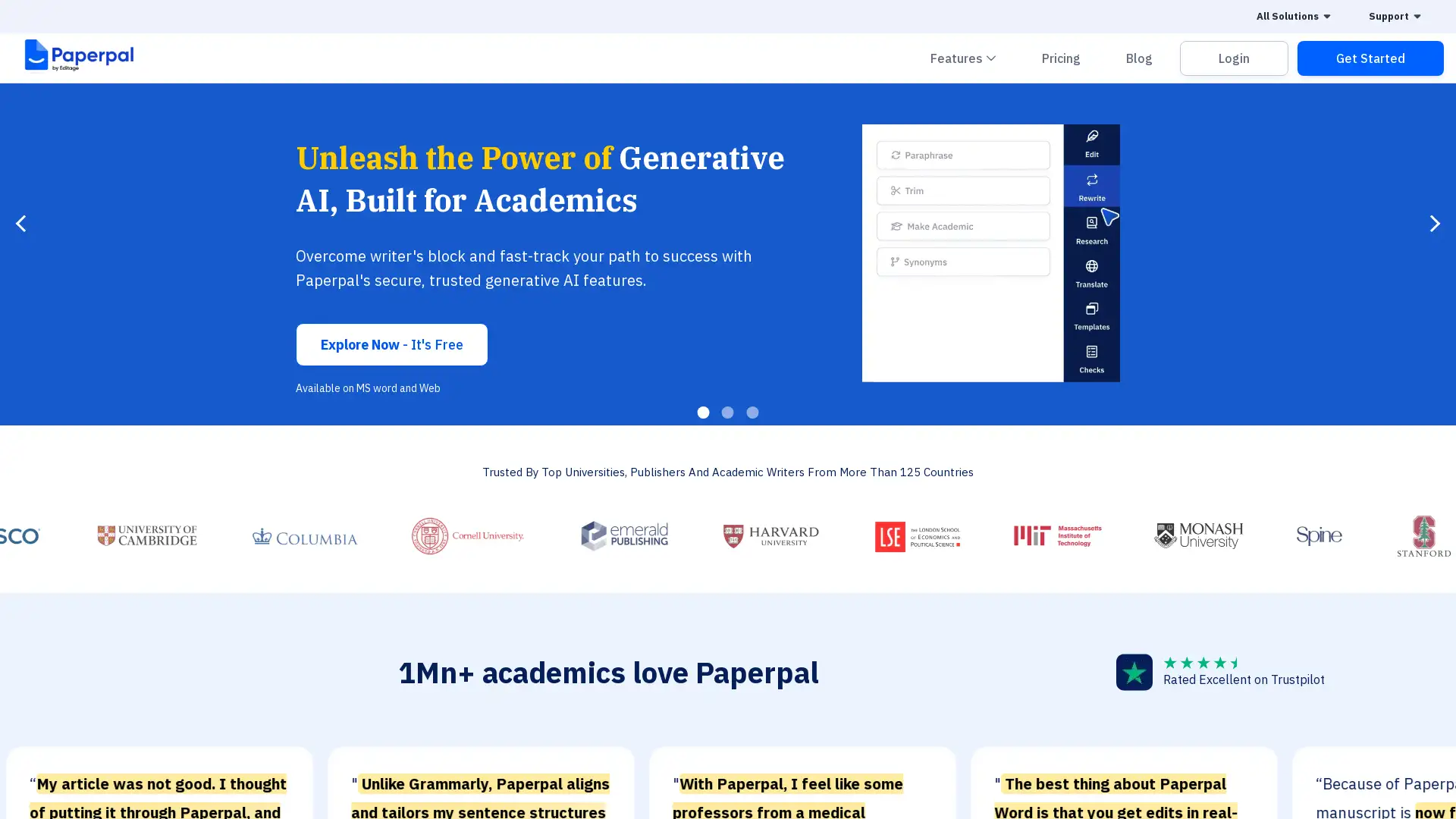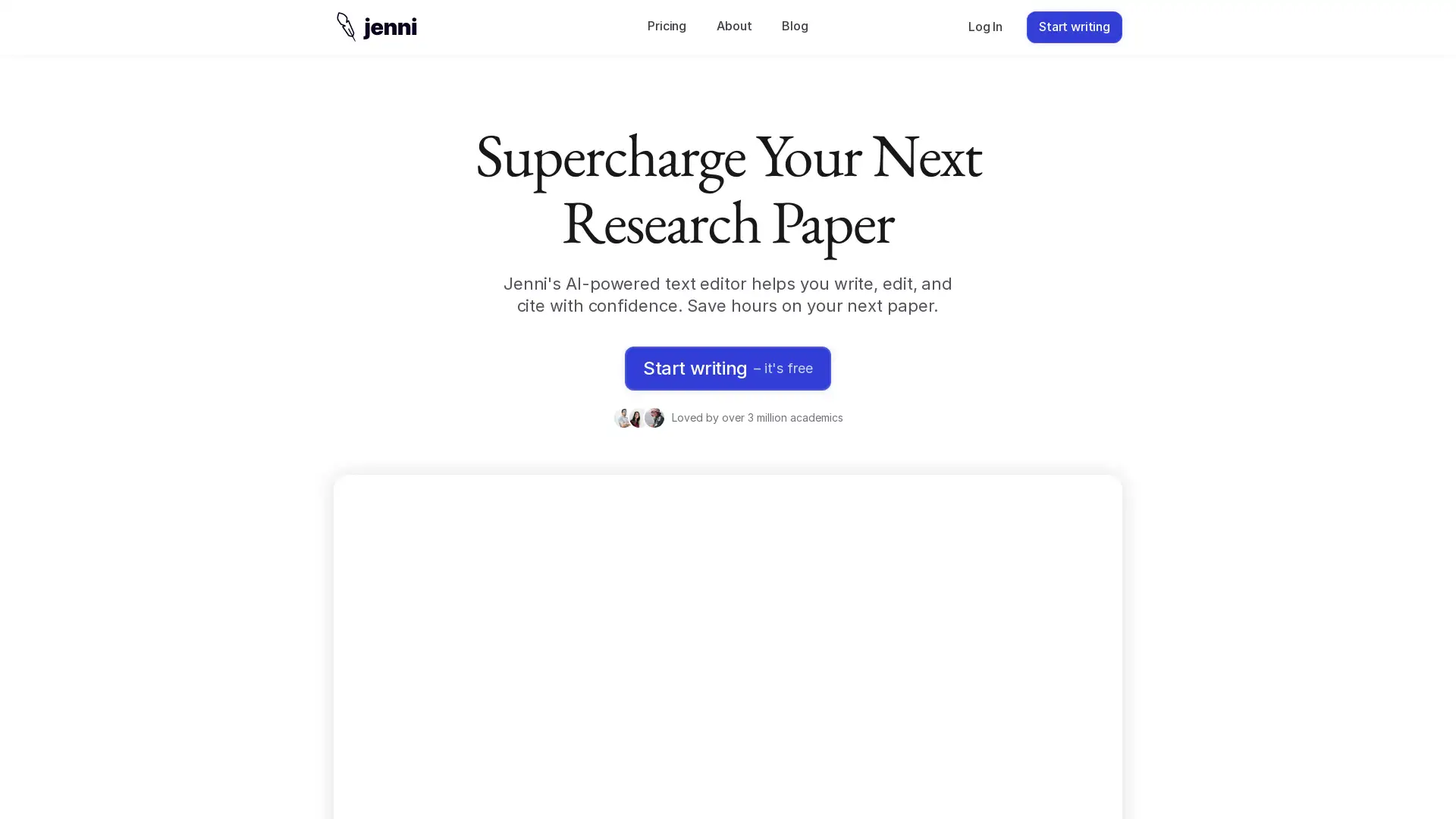Best 5 AI Tools for Research Assistance in 2024
Jenni AI, Poppy AI, Paperpal, Jenni AI, SCI Space are among the best paid and free Research Assistance tools available.
Understanding AI Tools for Research Assistance
AI tools for Research Assistance are specialized digital platforms powered by artificial intelligence, designed to streamline and enhance research tasks. These tools cater to researchers, students, and professionals by automating various research-related activities such as data analysis, content creation, and academic writing. They provide tailored solutions that improve productivity, accuracy, and efficiency in conducting research, making them indispensable for anyone involved in knowledge-based work.
Key Features of AI Tools for Research Assistance
The core features of AI tools for Research Assistance include advanced content generation, data analysis, language learning, and technical support. They offer flexible capabilities, ranging from simple automation of repetitive tasks to complex problem-solving and content creation. Unique features like web searching, image generation, and tailored academic writing assistance set them apart. These tools can easily adapt to user needs, offering both no-code solutions for beginners and customizable options for tech-savvy users.
Who Benefits from AI Tools for Research Assistance?
The target audience for AI tools in Research Assistance includes a wide range of individuals, from students and researchers to academics and professionals. Novices can use these tools to quickly grasp complex subjects, while experienced users, such as developers and analysts, can take advantage of their advanced customization features. These tools are particularly valuable for those needing fast, accurate, and efficient content creation, data processing, and analysis, regardless of their technical expertise.
Exploring Additional Insights on AI-Powered Research Solutions
AI tools for Research Assistance not only automate tedious tasks but also offer specialized solutions across various sectors. Their ability to integrate with existing workflows and systems makes them a practical choice for researchers aiming to boost productivity. These tools often come with user-friendly interfaces, making them accessible to non-technical users while offering deeper customization for advanced users, enhancing the research experience significantly.




